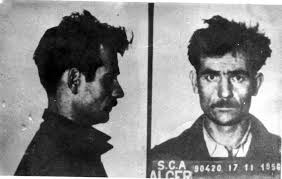The Prix Goncourt, the most prestigious of the “big six” French literary trophies, is awarded annually by the Académie Goncourt to the author of “the best and most imaginative prose work of the year.” As usual, arguments abound regarding what is “best” and “imaginative.” But what can’t be debated is how well these books indicate what is eating at the French. In 2015, Mathias Énard’s Compass, an innovative and virtuosic novel, illuminated the West’s attitude toward Orientalism. The next year, the prize went to Leila Slimani’s conventional The Perfect Lullaby, a ready-for-screenplay novel which nips at a prickly anxiety felt by a certain class of French achievers. Eric Vuillard’s 2017 The Order of the Day, short and straightforward, replays the Anschluss, the 1933 annexation of Austria by the Nazis – but its final message speaks to fissures in the European Union: “We never fall twice into the same abyss. But we always fall the same way, in a mixture of ridicule and dread.” Then in 2018, the prize went to Nicolas Matthieu’s vividly ambitious novel And Their Children After Them, which asks if the French can escape from a dystopia of alienation, aimlessness, and collapse.
 Arriving now for anglophones is Tomorrow They Won’t Dare to Murder Us (De nos frères blesses) by Joseph Andras, which won the 2016 Prix Goncourt for a first novel. This story portrays events during the final lethal spasms of France’s colonization of Algeria – and also vibrates with current French anxiety over “promoting respect for French values” and President Macron’s legislation to preserve them through oversight of mosques. At 144 pages in paperback, Tomorrow They Won’t Dare to Murder Us is a compact narrative with an elevated pulse and a singular purpose – to show how an unexceptional person may act exceptionally when oppression is too threatening to one’s community to ignore.
Arriving now for anglophones is Tomorrow They Won’t Dare to Murder Us (De nos frères blesses) by Joseph Andras, which won the 2016 Prix Goncourt for a first novel. This story portrays events during the final lethal spasms of France’s colonization of Algeria – and also vibrates with current French anxiety over “promoting respect for French values” and President Macron’s legislation to preserve them through oversight of mosques. At 144 pages in paperback, Tomorrow They Won’t Dare to Murder Us is a compact narrative with an elevated pulse and a singular purpose – to show how an unexceptional person may act exceptionally when oppression is too threatening to one’s community to ignore.
On February 11, 1957, French administrators and military personnel executed Fernand Iveton at the Barberousse Prison, the only pied-noir, or French person born in Algeria, to face the guillotine during the Algerian War of 1954-1962. A communist who forswore killing, Iveton had volunteered to place a bomb in an unfrequented storage area at the Algerian Gas Company where he worked as a turner. The bomb, timed to explode during the factory’s off-hours, was discovered and defused – but the court verdict named him condamné à mort anyway.
In March 1956, Morocco and Tunisia, also colonized by France, had gained their independence. But the French coalition government would not yield regarding Algeria, mainly out of political expediency at home. Guy Mollet, a socialist, was prime minister – and his Minister of Justice was François Mitterand, who would become the French president in 1981 and remain in that office through 1995. Mitterand personally rejected pleas for leniency on behalf of Iveton. The French political left had abandoned its avowed values – and the country had not yet fully confronted the collaboration of its wartime Vichy government with the Nazis, much less its slaughter and oppression of Algerian Muslims, and the torture of dissenters by the army.
 Andras’ mission entails the humanization of the likable, spirited and trustful Fernand Iveton. Born to a French father (also a communist) and Spanish Catholic mother, he travels to France in his early 20’s for treatment of tuberculosis. He meets Hélène, a single mother born in Switzerland to Polish parents who emigrated to France for agricultural work. Fernand and Hélène also share personal histories of support for the French underground during the German occupation. Fernand, who grew up in a Muslim Arab neighborhood, tells her, “Everyone lived together, the Arab market, the Moorish bath, Europeans and Jews, doors open during the night … marriages and circumcisions where the whole neighborhood was invited, yes, it was all pretty good, and it still is …” By focusing attention on Fernand, a white European, Andras puts the pressure on every French reader to take responsibility for history. That’s never been easy for the French. In 1995, Jacques Chirac became the first French leader to admit officially that the state had played an active role in killing Jews via Vichy collaborators.
Andras’ mission entails the humanization of the likable, spirited and trustful Fernand Iveton. Born to a French father (also a communist) and Spanish Catholic mother, he travels to France in his early 20’s for treatment of tuberculosis. He meets Hélène, a single mother born in Switzerland to Polish parents who emigrated to France for agricultural work. Fernand and Hélène also share personal histories of support for the French underground during the German occupation. Fernand, who grew up in a Muslim Arab neighborhood, tells her, “Everyone lived together, the Arab market, the Moorish bath, Europeans and Jews, doors open during the night … marriages and circumcisions where the whole neighborhood was invited, yes, it was all pretty good, and it still is …” By focusing attention on Fernand, a white European, Andras puts the pressure on every French reader to take responsibility for history. That’s never been easy for the French. In 1995, Jacques Chirac became the first French leader to admit officially that the state had played an active role in killing Jews via Vichy collaborators.
 The novel pivots between the present tense – the arrest and incarceration of Iveton – and past scenes in which he and Hélène become lovers. The prose is lucid, unsparing but also animated by a certain poised affection for its oppressed characters. Andras’ unfussy, vivid phrasing may evoke the style of another Algeria-based novel – namely Camus’ L’etranger, still taught today to French high school-level students. But Camus’ Meursault, also a pied noir, is emotionally detached within a world depicted as absurd; his relationships are inert. By basing his narrative instead on Iveton’s love for his community, friends and family, perhaps Andras is providing Tomorrow They Won’t Dare to Murder Us as not only an antidote to Meursault’s condition, but as a more pertinent text for today’s French syllabus.
The novel pivots between the present tense – the arrest and incarceration of Iveton – and past scenes in which he and Hélène become lovers. The prose is lucid, unsparing but also animated by a certain poised affection for its oppressed characters. Andras’ unfussy, vivid phrasing may evoke the style of another Algeria-based novel – namely Camus’ L’etranger, still taught today to French high school-level students. But Camus’ Meursault, also a pied noir, is emotionally detached within a world depicted as absurd; his relationships are inert. By basing his narrative instead on Iveton’s love for his community, friends and family, perhaps Andras is providing Tomorrow They Won’t Dare to Murder Us as not only an antidote to Meursault’s condition, but as a more pertinent text for today’s French syllabus.
[Published by Verso Books on February 23, 2021, 137 pages, $18.95 paperback]